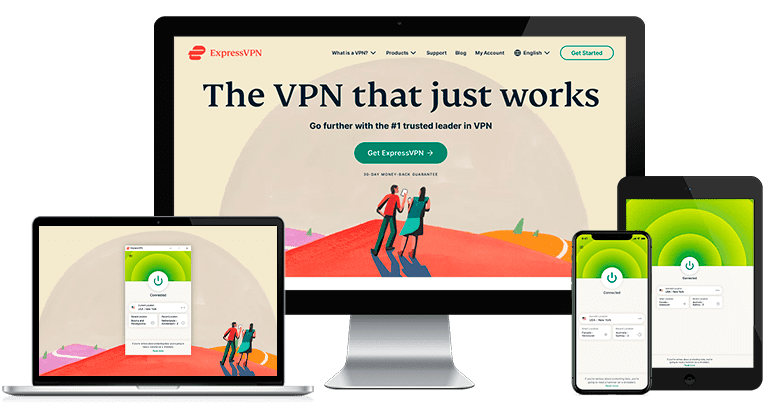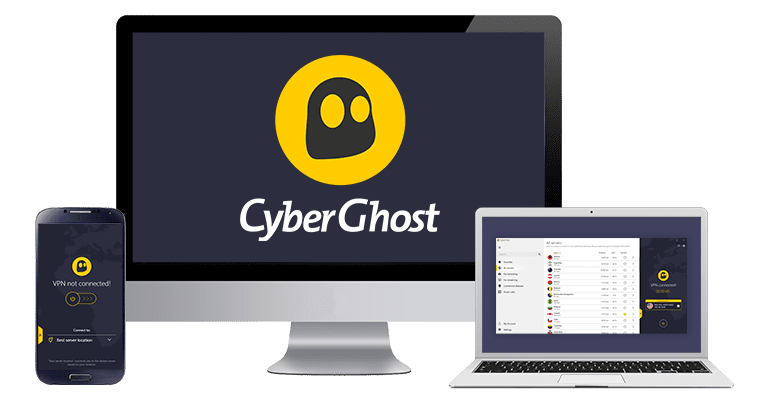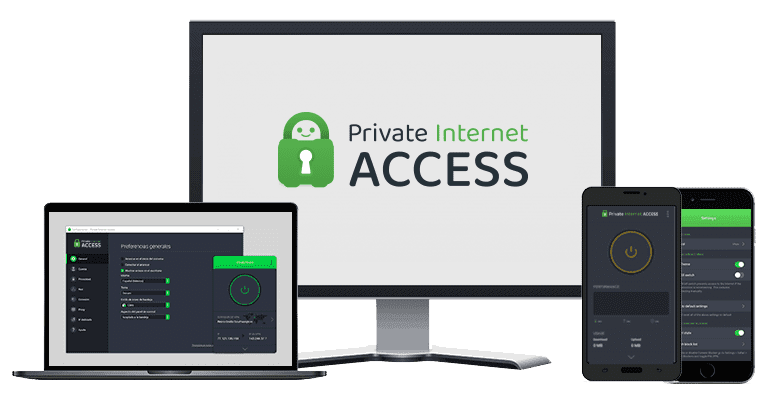5 Best & Free Open Source VPNs (Updated 2024)
If you’re not interested in paying for a VPN, there are plenty of open source alternatives available. Open source VPNs protect your data from hackers and advertising networks, all without needing a subscription fee.
Open source VPNs are an attractive option for users who want more customization options. Especially users who want to see or alter the source code, or even set up their own VPN apps.
However, you are probably better off with a premium VPN if you want to use a simple, low maintenance service. If you want something easier to use, I recommend ExpressVPN. It comes with a 30-day money-back guarantee so you can get a refund if you’re not happy with the service.
What is an Open Source VPN?
Open source VPNs are developed and maintained by a community rather than a single company. This allows anyone to access and alter the code. Open source VPNs are often free or much cheaper than a proprietary alternative.
Open source VPNs are also known for being reliable due to having more people involved with the development that can to pick up on bugs.
Why Use an Open Source VPN?
The most obvious advantage is that open source VPNs are free, and offer many of the same functions and features as paid VPNs if setup correctly. Open source VPNs are almost all built on the OpenVPN protocol, a popular and proven open source protocol that is even used by premium VPNs.
Unlike paid software, open source software enables anybody to legally access its source code and even make their own configurations. This transparency around the code means that vulnerabilities can quickly be picked up by the community of users. You can even set up your own VPS (virtual private server) using open source software if you have the technical knowledge.
Best Open Source VPNs in 2024
1. OpenVPN — Most Popular Open Source VPN
Key Features:
- Military-grade AES-256 encryption
- Compatible with Windows, macOS, Linux, iOS, and Android
OpenVPN is the most popular open source VPN, and is a tried and tested solution for businesses and everyday home users. While there are paid versions of OpenVPN (hosted and managed by the OpenVPN team), the software itself is free to download and use.
This VPN is highly secure with the option of AES-256 encryption, which is the most secure type known. There’s no need to worry about your traffic being seen by third parties — you can browse the internet anonymously and with high connection speeds. OpenVPN also supports dynamic IP addresses (temporary IP addresses that change over time) for extra privacy.
Compared to other open source VPNs, the user interface is simple and easy to use. OpenVPN is particularly good for users looking to establish private networks. However, unlike premium VPNs, OpenVPN does require some technical knowledge to properly install and use.
2. SoftEther VPN — Supports Many Encryption Protocols
Key Features:
- Many encryption protocols to choose from
- Compatible with Windows, macOS, Linux, iOS, and Android
SoftEther (short for “Software Ethernet”) is one of the most popular open source VPNs besides OpenVPN. The main advantage of this VPN is that it offers 7 different encryption protocols (SSL-VPN, OpenVPN, IPSec, L2TP, L2TPv3, EtherIP, and its own SoftEther protocol), so you can choose whichever one best suits your needs. Your privacy can also be protected with dynamic IP addresses.
The default SSL-VPN protocol is reliable at penetrating firewalls, and connection speeds are very fast if the VPN is configured properly with the servers you use. As well as being a high-performance VPN with plenty of room for customization, SoftEther’s user interface is straightforward and easy to use.
One potential downside of this VPN is that its own SoftEther protocol isn’t yet compatible with many platforms.
3. Securepoint VPN — Integrated Firewall
Key Features:
- Built-in firewall
- Compatible with Windows, macOS, Linux, iOS, and Android
The Securepoint VPN client is compatible with many other VPN services. One of the main advantages of this client is its built-in firewall, which gives you remote access to SSL, PPTP, IPSec, and L2TP, safely and securely. It also has a handy user identification system, where you can save user credentials for convenience.
This wired gateway is a secure VPN service that is particularly well suited to smaller companies and homes that already have networks in place. However, if you don’t have a network in place, you need to get one in order to use this VPN client.
4. VPN Tomato — Offers Its Own Servers
Key Features:
- Historical and real-time bandwidth monitoring
- Compatible with Windows, macOS, Linux, iOS, and Android
VPN Tomato is a free open source VPN service that offers site-to-site tunneling (using the OpenVPN encryption protocol) that doesn’t need to be custom configured. Unlike other open source VPNs, it has its own servers you can connect to in 60+ countries. You can choose to redirect your online traffic through the VPN tunnel and accept or push DNS settings as you please.
This VPN also has automatic firewall features and bandwidth monitoring. These convenient features do come at a price — VPN Tomato includes third-party ads.
5. iPIG — Creates Networks Without Configuration
Key Features:
- Military-grade AES-256 encryption
- Compatible with Windows
iPIG (or iOpus Private Internet Gateway) is a free open source VPN that works seamlessly with your firewall software to create a secure network without the need for any configuration. iPIG uses military-grade AES-256 encryption, ensuring your traffic stays secure, private, and safe from spying or hacking.
The drawback is that iPIG is only compatible with Windows. However, it’s a great choice if you need to set up a network on an older Windows operating system like Vista, 2003, XP, or 2000. iPIG is compatible with any internet connection.
How To Use an Open Source VPN
- Download a VPN installer. For example, OpenVPN-GUI.
- Run the installer.
- Find and run your chosen VPN configuration file. For example, files ending with ‘.ovpn’ for OpenVPN.
- Run your VPN client from a command prompt window. For example, using the command ‘openvpn myconfig.ovpn’.
What Are The Risks of Open Source VPNs?
Setting up an open source VPN requires a high level of technical knowledge, whereas paid VPNs are accessible and convenient for all internet users. Setting up an open source VPN without fully understanding the software can result in the VPN not working properly.
While open source VPNs are free, you are likely to end up paying extra costs somewhere. For example, you may have to pay for a server to host your VPN, and this can be more expensive than a premium VPN. If you use other servers, you may have no way of knowing how secure they are, whereas the servers of paid VPNs are typically audited for their safety and security.
With open source VPNs, you need to manually find and run configuration files for each new server. On the other hand, top-tier VPN apps usually have user-friendly interfaces that neatly showcase the range of options you have. For example, if a new server is within reach, it’s promptly shown as a choice you can pick within the VPN client’s interface.
Open source VPNs also tend to lack additional privacy features that paid VPNs have enabled by default. Premium VPNs often come with leak protection features, automatic kill switches, and the ability to switch between different encryption protocols whenever you want. If you are looking for convenience and ease of use, a premium VPN is the best option.
Quick Guide: Best Premium VPNs in 2024
- ExpressVPN — Advanced encryption and security features, and a 30-day money-back guarantee. Try ExpressVPN now!
- CyberGhost — Easy to use, but unaudited no-logs policy.
- Private Internet Access — Large choice of servers, but not quite as fast as other premium VPNs.
Alternative VPNs You Should Consider in 2024
1. ExpressVPN – #1 Premium VPN on the Market
Key Features:
- Over 3,000 servers in 105 countries
- Military-grade AES-256 bit encryption
- Super-fast connection speeds
- Supports up to 8 devices simultaneously
- Available on Windows, macOS, Linux, iOS, and Android
ExpressVPN is the best premium alternative to open source VPNs because of its speeds, security, and ease of use. ExpressVPN provides a range of advanced encryption protocols, including OpenVPN, L2TP, and their proprietary Lightway protocol. The Lightway protocol stands out as one of the fastest and most secure options available. Moreover, ExpressVPN enhances your security with Perfect Forward Secrecy, automatically updating your encryption key to add an extra layer of protection whenever you use their service.
With ExpressVPN you can access streaming services with minimal setup required. Sites unblocked include:
| Netflix (US, UK, France, and more) | Amazon Prime Video | Disney+ | Youtube |
| BBC iPlayer | HBO Max | ESPN | DAZN |
ExpressVPN performed impressively during my speed tests, with no lag when gaming or streaming HD videos.
On top of this, ExpressVPN also comes with the following security features:
- 256-bit military-grade encryption to keep your data safely protected
- DNS and IP leak protection to make sure none of your information is revealed
- Automatic kill-switch to protect your privacy in case your WiFi connection fails
- No-logs servers to ensure your data is never saved
While ExpressVPN does cost more than other options, its super-fast speeds and excellent security make it worth it. There is also a 30-day money-back guarantee so you can try out ExpressVPN without worrying — I tested this and had my money back within a week.
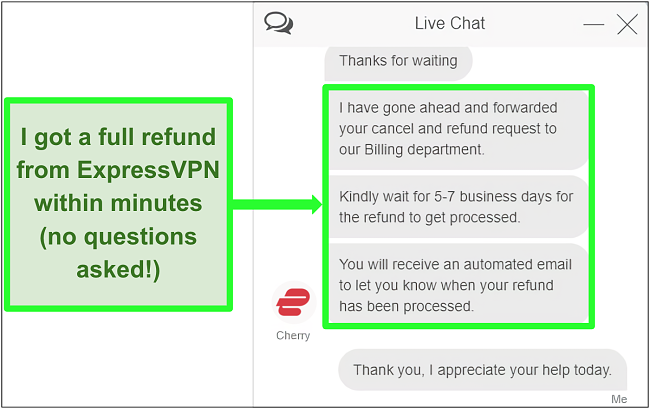
ExpressVPN works on: Windows, macOS, Linux, Android, iOS, Amazon Kindle, Amazon Fire, gaming consoles, select routers, and more
2. CyberGhost – Simple and Straightforward Interface
Key Features:
- Over 11,800 servers in 100 countries
- Miltary-grade AES-256 bit encryption
- Fast connection speeds
- Supports up to 7 devices simultaneously
- Available on Windows, macOS, Linux, iOS, and Android
CyberGhost is one of the easiest VPNs to use, as its interface is so intuitive. Switching between different servers and encryption protocols is extremely straightforward, even for a complete beginner to VPNs. This is a particular advantage over open source VPNs that need more technical knowledge to get running.
This VPN offers many encryption protocols including the powerful WireGuard protocol, which is particularly fast and effective for mobile devices. When I watched HD videos and played Apex Legends, I didn’t experience lag and buffering with CyberGhost. During tests, CyberGhost unblocked:
| Netflix (US, UK, France, and more) | Amazon Prime Video | Disney+ | Youtube |
| BBC iPlayer | HBO Max | ESPN | DAZN |
When it comes to security, CyberGhost has the following features that are enabled by default:
- Automatic kill switch to protect your data if your WiFi connection suddenly cuts out
- DNS and IP leak protection to stop your data from being revealed
- No-logs policy and no-logs servers to ensure your data isn’t saved
CyberGhost is not as fast as ExpressVPN, but a 45-day money-back guarantee means you can try CyberGhost out without risk — I had my money back within a week when testing this.
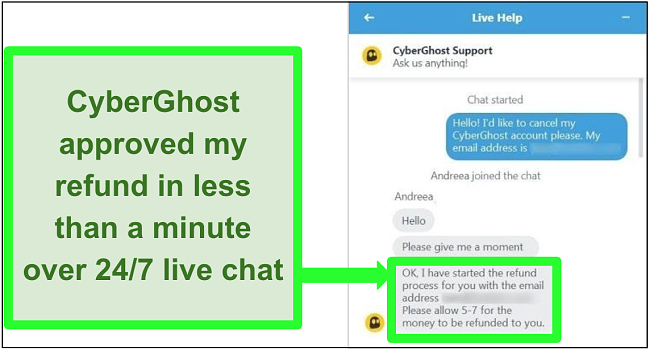
CyberGhost works on: Windows, macOS, Linux, Android, iOS, Amazon Fire, gaming consoles, select routers, and more
3. Private Internet Access – Huge Number of Servers Included
Key Features:
- Over 35,000 servers in 91 countries
- Miltary-grade AES-256 bit encryption
- Fast connection speeds
- Supports up to unlimited devices simultaneously
- Available on Windows, macOS, Linux, iOS, and Android
Private Internet Access (PIA) has a massive number of servers to choose from — over 35,000 in 91 countries. This is certainly an advantage over the open source VPNs that have no included servers.
You can access various regional streaming libraries easily with PIA, including:
| Netflix (US, UK, France, and more) | Amazon Prime Video | Disney+ | Youtube |
| BBC iPlayer | HBO Max | ESPN | DAZN |
While streaming speeds aren’t as fast as ExpressVPN, I experienced minimal buffering while watching Netflix with PIA.
PIA comes with the following security features enabled by default:
- Automatic kill switch to shut off your data transfer if your WiFi is unstable
- DNS and IP leak protection to prevent your data from being accidentally revealed
PIA has a downside in that its user interface might not be as user-friendly as some other premium choices. Additionally, when running in the background, PIA may not always appear as an available option on the Windows taskbar.
PIA is less expensive than other paid VPNs, at just $2.03 a month for a 2-year + 4 months subscription. Try PIA for free with its 30-day money-back guarantee, which I tested and had my money back within 4 days.
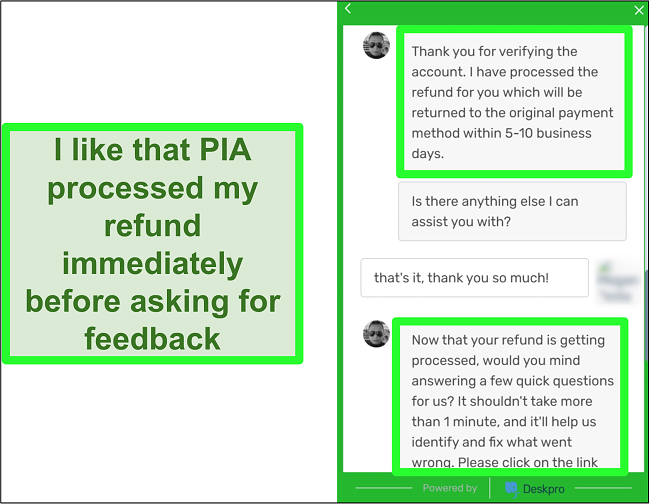
FAQ: Open Source VPNs
Can I use an open source VPN at home?
Are open source VPNs safe?
Can I watch Netflix with an open source VPN?
Best & Free Open Source VPNs
If you are interested in manually setting up and configuring a VPN for your own network, the open source VPNs on this list are all well-renowned. Each has different strengths (e.g., optimized for different operating systems), so consider your specific requirements.
However, if you would prefer a VPN that you can use straight away without the need for complex configuration and maintenance, a premium VPN may be a better option. I recommend ExpressVPN in particular. You can try out ExpressVPN’s security features risk-free. If you find the service isn’t right for you, you can get a refund with the 30-day money-back guarantee.

